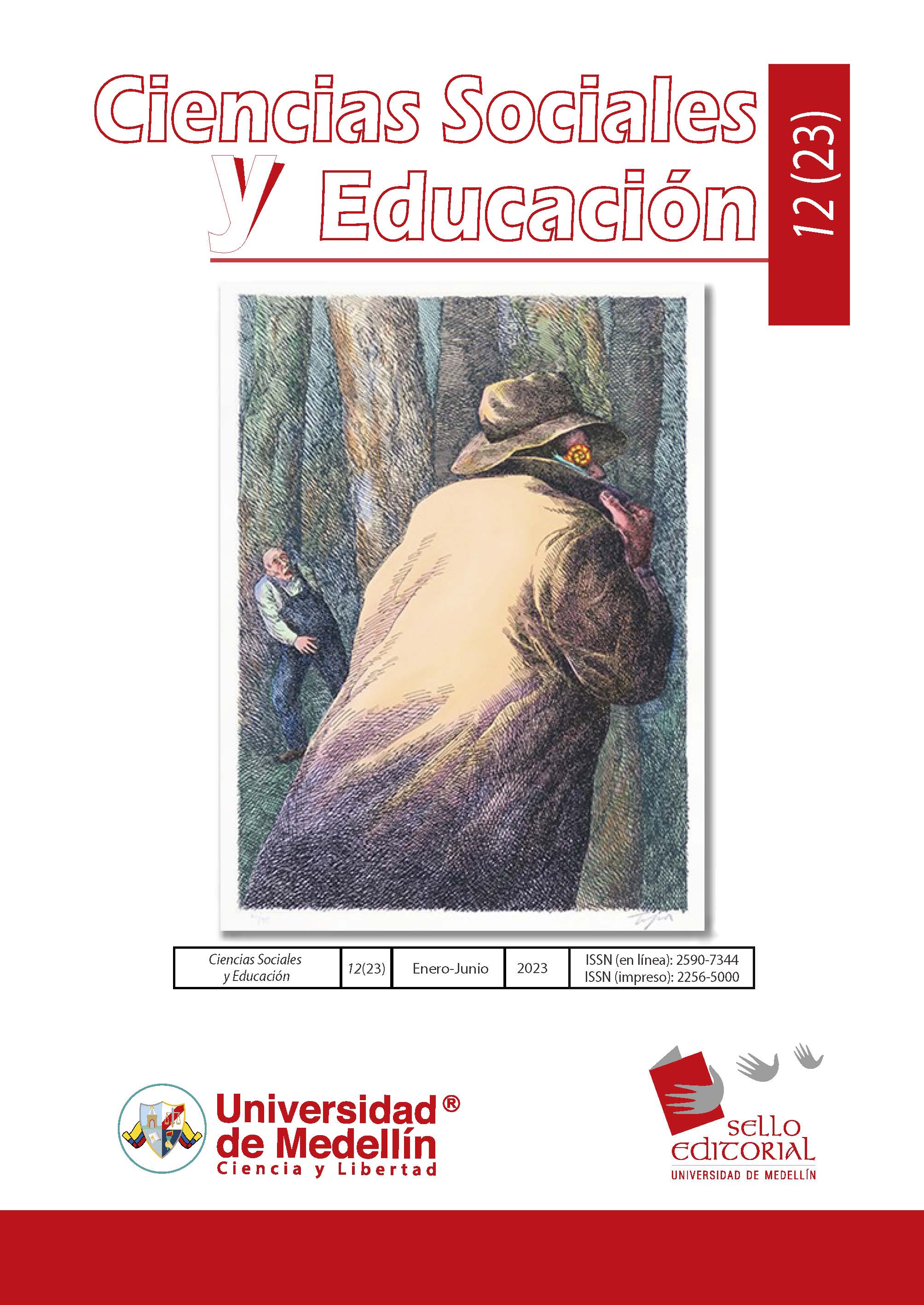Cultural Aspects of Legal Translation: The Case of Birth Certificates in French and Portuguese
Main Article Content
Abstract
The birth certificate is an extremely important document in the life of a subject, as it is the first document of the citizen to have legal value and to be used as proof of age, nationality and filiation, thus guaranteeing certain rights to the citizen. In order to explore the linguistic, cultural and legal implications of such a document, we start from a corpus of Sworn Translation of birth certificates from French from France (ff) to Portuguese from Brazil (pb) and vice versa, in order to analyze the terms and expressions present in this corpus and how they are doing in this movement of translation. We are, therefore, in a field which encompasses distinct perspectives in relation to specialized translation. Thus, our study is based on the research of Crépon and Rodrigues, concerning the theoretical field of Translation Studies, and the work of Gémar, Peron Guedes and Mozzilo and Harvey with regard to the relationship between Translation and the Law. We have verified that the specificities of Brazilian and French law are either explicitly marked or erased, performing a movement that is both 'domestication' and 'foreignization' in terms of translation. This study is of major importance once it proposes to discuss the cultural and linguistic relations which are intrinsic to translation practices and whose outlines may be more or less identifiable depending on the contexts in which they occur.
Article Details
References
Aulete Digital. (s. f.). Assessor. Consultado el 3 de septiembre de 2020. http://www.aulete.com.br/assessor
Bandia, P. (2001). Le concept bermanien de l’« Étranger » dans le prisme de la traduction postcoloniale. ttr, 14(2), 123-139. https://doi.org/10.7202/000572ar
Bernier, I. (2019, 6 de junio). Histoire : la naissance de l’état civil français. Futura. https://www.futurasciences.com/sciences/questions-reponses/histoire-histoire-naissan-ce-etat-civil-francais-11535/
Brasil. (s. f.). Certidão de nascimento juramentada. Consultado el 1 de mayo de 2020. https://certidaodenascimento.com.br/certidao-de-nascimento-juramentada
Brasil. (1973, 31 de diciembre). Ley n.° 6015. Dispone sobre los registros públicos, y dicta otras disposiciones. DOU de 31.12.1973. http://www.planalto.gov.br/ccivil_03/leis/l6015compilada.htm
Brasil. (1994, 18 de noviembre). Ley n.° 8935. Regulamenta o art. 236 da Constituição Federal, dispondo sobre serviços notariais e de registro. (Lei dos cartórios) [Regula el art. 236 de la Constitución Federal, que prevé los servicios notariales y de registro. (Ley de notarios)]. DOU de 21.11.1994. http://www.planalto.gov.br/ccivil_03/leis/l8935.htm
Brasil. (2002, 10 de enero). Ley n.° 10406. Establece el Código Civil. DOU de 11.1.2002. http://www.planalto.gov.br/ccivil_03/leis/2002/l10406.htm
Catharino, T. R. (2015). Um estudo da terminologia de certidões de nascimento: elaboração de glossário português-francês para tradutores juramentados. f. [tesis de maestria, Universidad Estatal Paulista Julio de Mesquita Filho]. Repositório Institucional UNESP. http://hdl.handle.net/11449/138349
Comuna de Caumont. (s. f.). Rôles et responsabilités de nos élus communaux. Consultado el 3 de septiembre de 2020. https://www.caumont-normandie.fr/roles-et-responsabilites-de-nos-eluscommunaux/
Comuna de Courbevoie. (s. f.). Les adjoints au maire. Consultado el 9 de septiembre de 2020. https://www.ville-courbevoie.fr/303/les-adjoints-au-maire.htm
Consejo de Estado de Francia (1918, 21 de junio). Fallo en litigio n.° 55757 (Sr. Cornelle, rel.). https://www.legifrance.gouv.fr/affichJuriAdmin.do?idTexte=CETATEXT000007635592
Crépon, M. (2004). La traduction entre les cultures. Revue Germanique Internationale, (21), 71-82. https://doi.org/10.4000/rgi.998
Curti-Contessoto, B. (2018). Terms designating places for the celebration and civil registration of marriages and places for the issuance of marriage certificates in Brazilian history. Terminà lia, (18), 14-24. https://doi.org/10.2436/20.2503.01.123
Curti-Contessoto, B. F. (2019). Terminologia de certidões de casamento: estudo terminológico bilíngue e elaboração de glossário português-francês [tesis doctoral, Universidad Estatal Paulista, San José de Rio Preto]. Repositório Institucional UNESP. https://repositorio.unesp.br/handle/11449/183611
De Paula Molinari, M. Curti-Contessoto, B. y Deângeli, M. A. (2021). Aspects culturels de la traduction juridique : le cas des actes de naissance en français et en portugais. Mutatis Mutandis. Revista Latinoamericana De Traducción, 14(2), 623-641. https://doi.org/10.17533/udea.mut.v14n2a16
Diniz M. H. (2005). Dicionário jurídico (2.a ed). Saraiva.
Francia. (1803). Código Civil. http://www.legifrance.gouv.fr/affichCode.do?cidTexte=LEGITEXT000006070721
Francia. (1996, 21 de febrero). Code général des collectivités territoriales [Código general de autoridades locales y regionales]. https://www.legifrance.gouv.fr/codes/section_lc/LEGITEXT000006070633/LEGISCTA000006192257/
Francia. (s. f.). Formalités liées à l’état civil. Service État Civil, Paris. Consultado el 3 de mayo de 2020. https://www.paris.fr/pages/etat-civil-100
Gémar, J. C. (2002). Le plus et le moins-disant culturel du texte juridique. Langue, culture et équivalence. Meta, 47(2), 163-176. https://doi.org/10.7202/008006ar
Gémar, J. C. (2015). De la traduction juridique à la jurilinguistique : la quête de l’équivalence. Meta, 60(3), 476-493. https://doi.org/10.7202/1036139ar
Harvey, M. (2009). Le traducteur juridique face à la différence. Traduire, (221), 79-85. https://doi.org/10.4000/traduire.347
Larousse. (s. f.). État. Consultado el 9 de septiembre de 2020. https://www.larousse.fr/dictionnaires/francais/%C3%89tat/31318
Le Trésor de la Langue Française informatisé (TLFi). (s. f.). Trésor de langue française informatisé. Consultado el 3 de septiembre de 2020. http://atilf.atilf.fr/
Molinari, M. P. (2016). Terminologia do domínio dos passaportes franceses: estudo terminológico e elaboração de glossário monolíngue francês [tesis de maestría, Universidad Estatal Paulista, San José de Rio Preto]. Repositório Institucional. https://repositorio.unesp.br/handle/11449/141888
Peron Guedes, C. y Mozzilo, I. (2014). Tradução de marcadores culturais em textos técnicos: a função do texto e o papel do tradutor no contato entre línguas e culturas. Scientia Traductionis, (15), 279-292. https://doi.org/10.5007/1980-4237.2014n15p279
Rodrigues, C. C. (2008). A ética da apropriação. Tradução & Comunicação: Revista Brasileira de Tradutores, (17), 21-28. https://revista.pgsskroton.com/index.php/traducom/article/view/2075
Venuti, L. (2013). Tradução, simulacro e resistência. En R. F. Blume y P. Peterle (orgs.), Tradução e relações de poder (pp. 347-383). Copiart. https://repositorio.ufsc.br/handle/123456789/178907






